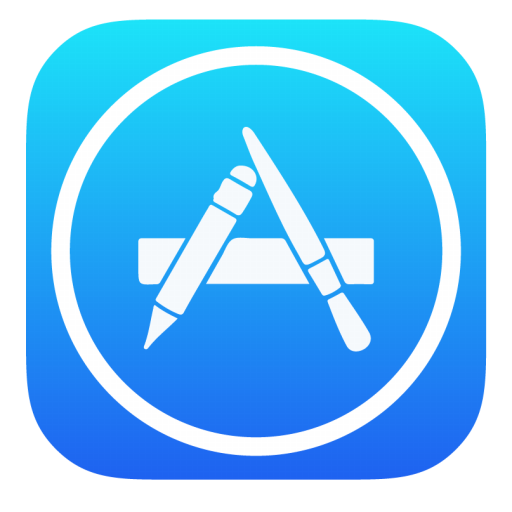Good news – warmer weather is right around the corner. That means it’s almost time for the 4-B’s: beers, BBQs, beaches and, of course, boats. From spring onwards, as the weather firmly entrenches itself in the 20s and higher, you’re going to want to take every opportunity to hit the water, but the last thing you want to have to worry about is gear prep!
That’s why we reckon getting all your boating gear prepped, serviced and ready to use as early in spring as possible is the way to go – and one of the biggest and most time consuming jobs in getting prepped to head out, is ensuring your trailer is serviced, setup and ready to go. Here’s everything you need to know from trailer light wiring to boat trailer parts to ensure your boat trailer is ready for the summer!

Choosing the Right Trailer System for your Boat
First up, if you’re in the market for a new trailer, you’ll want to ensure you’re getting the right trailer for your boat. There’s a few different options available, from basic rollers to skids. Here’s a quick rundown on each, and what type of boat they’re best suited to:
This system is versatile and good for most boats. In a nutshell, they allow you to roll the boat off the trailer. ARK has a range of rollers that’ll suit your needs. The three main types of roller style trailers are:
- Wobble Rollers – Ideal for fibreglass hulled boats
- Roller Bunks – Ideal for smaller boats, and sit-on Jetskis
- Keel Rollers – Using soft poly, hard poly or rubber rollers, these are suitable for both fibreglass and aluminium boats.
Skids are generally made from either teflon or carpet, and you will use one or the other depending on what your boat’s hull is constructed from.
- Carpet Skids – Ideal for fibreglass hulled boats
- Teflon Skids – Ideal for aluminium hulled boats (May scratch fibreglass hulled boats)
Effective Trailer Light Wiring
When it comes to effectively wiring your trailer up, we firmly believe that keeping it as simple as possible is the best idea. This is because it makes servicing and repairing much easier down the track.
One fantastic option when it comes to effectively wiring your boat trailer is to use something like ARK’s Ezi-connect Boat Trailer Harness. This harness is a complete boat trailer wiring solution that’s suitable for trailers hauling both jetskis and boats up to 16ft- or as big as 21ft with an extension part. The best part about this harness is the ease with which it can be used – there’s no cutting, stripping, splicing, crimping or heat shrinking required!
When it comes to lights for your trailer, LED’s are really the only way to go these days. ARK’s LED trailer lights are high quality and feature a heavy duty construction for top notch durability.
Rust Prevention
Rust and corrosion are the natural enemies of boating, and particularly boating trailers. There’s two elements to rust and corrosion on your boat trailer: prevention, and treatment.
Your first goal should be preventing rust from ever gaining a foothold. There are three main elements that you’ll want to consider when preventing rust and corrosion:
- Rust Resistant Coating: A coating of fish oil or lanolin can go a long way to ensuring rust and corrosion can never get a foothold on your trailer.
- Fresh water hose down: It’s important once you’ve taken your boat and trailer out, that you give them both a comprehensive wash with fresh water, after EVERY use, to ensure there’s no pockets of salty residue on your trailer.
- Storage: You’ll want to ensure that you store your trailer in a dry place, well away from any adverse weather. This is especially important if you live near the coast, as salt spray can be a real issue.
Secondly, if your trailer already has a bit of rust and corrosion, you’ll want to be doing everything you can to ensure that corrosion doesn’t spread. Two things you can do to help prevent corrosion spreading are:
- Hose down: Again, do so comprehensively with fresh water after EVERY use. This will ensure that there’s no salty residue to assist corrosion spreading.
- Treat the affected area: Using a wire brush get rid of as much of the rust and corrosion as possible, and then apply a rust and corrosion treatment, before finally repainting the trailer with corrosion and rust resistant paint.

Brake Adjustments
It goes without saying that your trailer’s brakes are an important part of safe towing, and ensuring they’re operating correctly is paramount. Here’s a quick three-step guide to checking and adjusting your trailer brakes:
- Remove the brake cover: usually made from plastic or rubber, the cover will need to be removed to access the brake chamber and adjustment wheel.
- Tighten the adjustment wheel: You can do this with a flat head screwdriver, or a specialist brake spook or adjustment tool. You’ll need to turn the star wheel adjuster one click at a time, spinning the wheel between each click to ensure it spins freely.
- Stop when the wheel begins to drag: Once the wheel becomes difficult to turn, top tightening the adjuster. The tyre should spin freely, but still slightly drag.
Trailer Wheel Bearings
Your trailer’s wheel bearings may be small, but they carry the entire load of both your trailer and your boat, and are one part that you most certainly do not want to fail you. A failed wheel bearing will literally see the wheel fall off your trailer, and can cause significant damage to both the trailer and your boat. Boat trailers especially suffer from trailer bearing wear and tear due to the fact that the bearings are regularly submerged in water (often corrosive salt water).
Some people suggest checking your trailer’s wheel bearings every three months, but for boat trailer’s, we’d suggest doing so more frequently – one a month during high use periods would be ideal.
The good news is that checking your wheel bearing is a relatively quick and painless exercise.
- Jack up one side of your trailer so the tyre is off the ground
- Grab the tyre with both hands (at the 10 O’Clock and 2 O’Clock positions)
- Shake the wheel and feel for any movement or rattle
- Spin the wheel, and listen for any rumbling sound
- Repeat on the other wheel
Another quick way to check that your wheel bearings are in good health is to feel the wheel hub after you’ve been driving for 15-20mins. If the wheel hub is warm, then that could be an indication that there’s an issue and you should investigate further.
Where to go for more information?
Ark are the proven experts when it comes to boat trailer parts and accessories.. They’ve been leaders in trailer parts, towing gear and 4WD accessories for over 40 years, are 100% Australian owned and independent.
Get in touch with our expert team of boaters and 4WDers if you need more information about your boat trailer!


